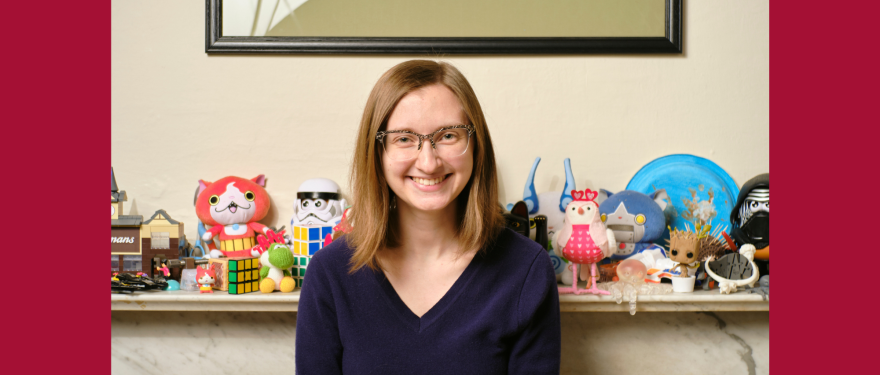The HBS 2+2 program is a deferred admission process for current students in their final year of study, either in college or a full-time master’s degree program. If you are admitted through 2+2, you work for two to four years in a field of your choice before enrolling in the regular HBS MBA Program. This spring we’re speaking with current MBA students who were admitted through 2+2 to learn what they did during their deferral years.
Here’s an interview with Vika Wasyliw (MBA 2023).
Why did you decide to apply to HBS via the 2+2 deferred admissions process?
As part of my undergraduate degree, I had the opportunity to do engineering co-ops (longer-term internships) at three different companies. During these experiences, I noticed that the vast majority of technical leaders either had very strong business instincts and capabilities but limited understanding of product technical needs, or deep engineering knowledge with minimal regard for business requirements.
As an engineer who loves working with people even more than circuit boards, I saw an opportunity to bridge these gaps and help others communicate more effectively across all aspects of a technical business. As an undergrad, I viewed 2+2 as a way to gain a broad skillset and bring together a world of specialists.
How long did you defer your 2+2 admission?
I deferred for three years.
What job(s) did you have during your deferral?
When I graduated in 2018, I returned to my third co-op employer, Starry Inc., as an Electrical Engineer on the Radio Frequency team. Starry is a start-up internet service provider headquartered in downtown Boston that uses fixed wireless broadband technology. When I worked there, Starry was in a phase of massive growth following series C funding, a period that was both exciting and stressful. Ultimately, I felt that I was enjoying the very technical work less and less as time went on and wanted to try a broader role.
In 2019 I started as more of a generalist Electrical Engineer at Formlabs, helping build stereolithography 3D printers. Formlabs offered me a lot of flexibility and gave me the opportunity to try new things beyond my area of expertise, including project management, compliance, and DEI initiative leadership. I wore a wide array of hats and had a wonderful time learning new skills. As I began to wrap up projects, and with COVID slowing down the development of new products, the time seemed right to take my next step and attend HBS.
Did 2+2 change your path or alter your post-undergraduate plans?
Without 2+2, I likely would have stayed at Starry for much longer, continuing to work on technical projects within my comfort zone for years without branching out.
When applying to new roles, 2+2 gave me the chance to focus on my interests, look for what “felt right,” and largely ignore things like title, prestige, and compensation. I knew that whatever I chose, I would have new opportunities and credibility within a few years. I had an incredibly exploratory and freeing three years during my deferral period thanks to the safety net of 2+2.
What advice do you have for prospective MBA students considering the 2+2 program?
Focus on what makes you unique and what you can bring to a discussion that others cannot. There is no one ideal type of business student, and a greater variety of backgrounds makes the classroom experience better for everyone.
Knowing with certainty what comes next is an amazing opportunity not often afforded in adulthood. The 2+2 program enables you to take risks and try new things, secure in the knowledge that even if things don’t go as you originally planned, you’ll land at HBS.

